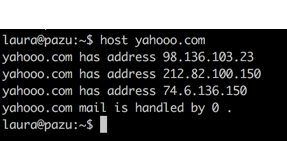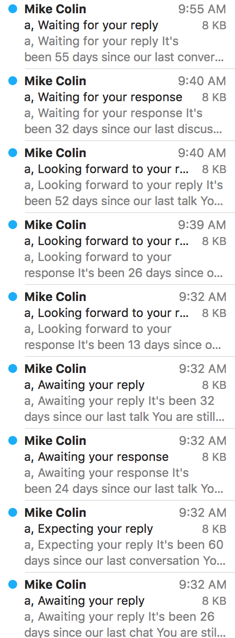Identifying domains that don’t accept or send email
A couple folks have asked me recently about MX records that they don’t understand. These records consist of a single . or they contain localhost or they are 127.0.0.1.
In all cases, the domain owners use these records to signal that the domains don’t accept email. What do these records look like?
Why do domains do this? In all cases it’s because the domain owners want to signal they don’t accept email. But there are a number of different reasons to do this.
In the yahooo.com example, this is a domain actually owned by Yahoo. The website redirects to the primary yahoo.com site. But, it’s not a domain that accepts mail. They notify us of this by using a dot mx.

In the collectors.org example, they list the MX as localhost. This is a convention I’ve seen from a lot of for-sale domains. (As an aside, some of the for sale domains do accept email. The ones I’ve identified use a handful of common MXs that I suspect belong to the companies that sell access to spamtraps.)
I’ve also seen some domains use 127.0.0.1 as a MX record. Again, this is signalling that they really, really don’t want to accept email.
There’s also a way to signal a domain doesn’t send mail. This is accomplished by using a SPF -all record.

There you go. Multiple ways to signal a domain doesn’t accept email and one way to signal the domain never sends email.

